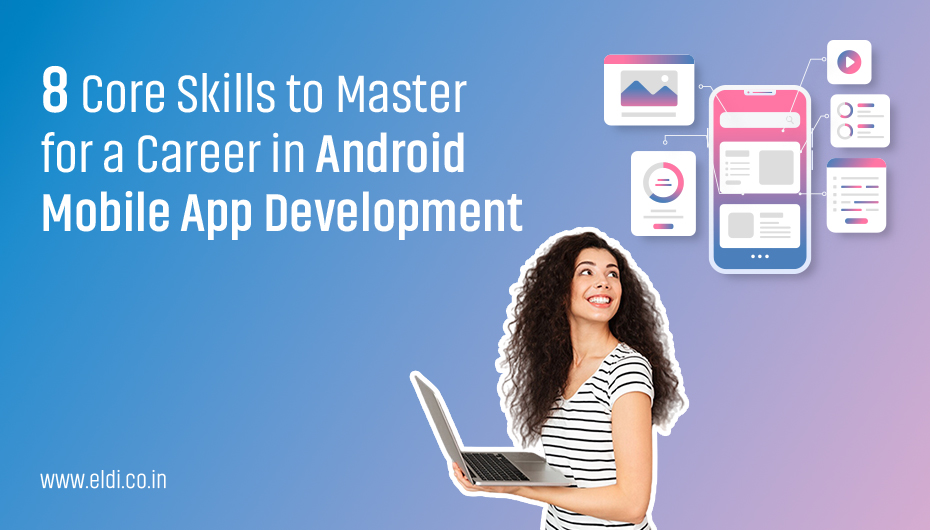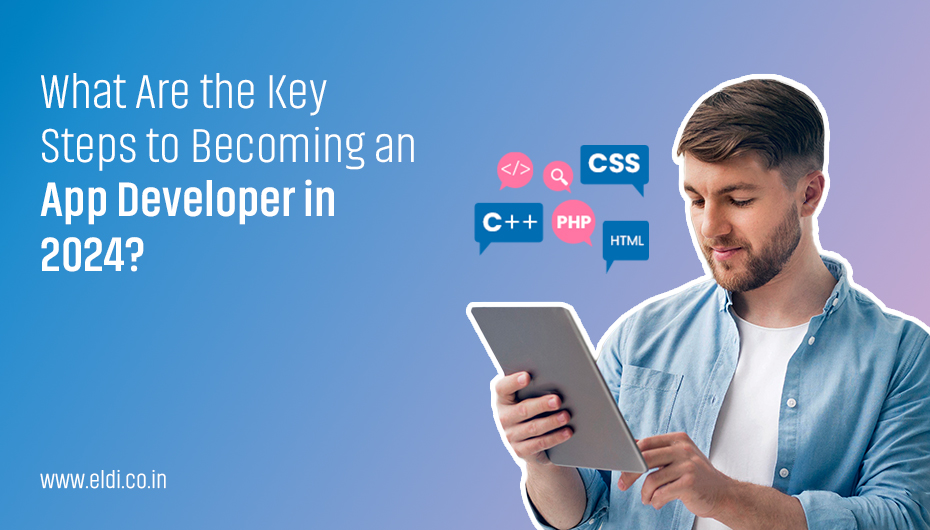Expert Skills Taught in a Mobile Development Course in Ahmedabad
Ahmedabad is not only the cultural capital of Gujarat but also a Techno city in the making. Thus, any student or young professional in the buoyant city should consider taking a mobile development course to open up several well-paid creative opportunities.
Apps are increasingly becoming popular as mobile applications are almost the norm in today’s society. A mobile app does almost every service from ordering food to monitoring finances. Businesses are now turning to mobile-first strategies, which creates a higher demand for mobile app developers. If you are considering entering the tech space, this would be an ideal time to check out a mobile app development course for beginners.
This article describes all the top skills you get in such courses and explains why Ahmedabad is the best destination to commence your journey into the world of app development.
Why Learn Mobile App Development?
Mobile app development has become one of the most important fields of work because it offers plenty of opportunities to new talents aspiring to be developers. Here is the reason that learning app development will be a game-changer:
Ahmedabad’s buzzing technology industry makes finding innovative and efficient app developers challenging. However, individuals who complete a mobile development course can gain a steady job and an excellent income.
Mobile application development refers to a course that enables one to design with different interfaces, such as Android IOS, among others, and cross-over tools like Flutter. Whether you are interested in an iOS development course, using the approach to the best Android development course, or are interested in the Flutter advanced course, these skills will be beneficial.
Mobile application programmers are now amongst the best-paid professionals in IT. The good news is that even graduates of a mobile development course in Ahmedabad are gaining ready access to salaries that grow at a phenomenal rate.
The worlds of creativity and technology collide under the umbrella of mobile application development. One has the opportunity to develop applications for solving problems, entertaining users, or even making life easier. In fact, it will give you a feeling of achievement.
Top Skills You’ll Learn from a Mobile Development Course
Enrollment in a mobile app development course for beginners is the perfect opportunity for a whopping foundation. Here are the excellent skills you will learn:
All mobile apps begin with code. A mobile development course in Ahmedabad includes all the programming languages you must know:
- For Android: Java and Kotlin.
- For iOS: Swift and Objective C.
- Cross-platform app development using Dart for Flutter
These languages form the core of app development and complete the requirements necessary for building responsive and efficient applications.
User Interface and User Experience are essential parts of the application development process. Therefore, in the mobile development course, you will learn to design beautiful and intuitive applications to create a well-rounded user experience.
Create apps that work on both Android and iOS platforms. This will save you time and resources while delivering outreach to a broader audience.
Most applications must communicate with one or more external services, such as payment gateways, social networking sites, or location-based services. You will gain the competence to integrate the API into your apps, which will significantly enhance their functionality.
Most importantly, you ensure that your app runs smoothly. You would learn to track and troubleshoot issues promptly and undergo rigorous validation and testing to ensure your product is perfect.
Such version control systems comprise a collaborative environment through Git. Here, you will learn to track changes in your codebase, work with teams, and manage project versions effectively.
What Are The Benefits of a Mobile Development Course In Ahmedabad?
Ahmedabad offers unique benefits for both students and professionals seeking a career in app development. Here are the distinguishing features of the city:
The “Ahmedabad” tech ecosystem is rapidly expanding, with several prominent IT companies and start-ups relying heavily on resource hiring. More importantly, completing a mobile app development course in Ahmedabad would primarily grant you a placement opportunity within the city.
Institutes in Ahmedabad are inclined towards practical training for their students. This indicates that you will likely work on real projects, learn from real projects, and gain firsthand experience to equip you to face industry challenges.
Events, hackathons, and other tech meetups in Ahmedabad have enabled industry professionals, mentors, and peers to network and build pretty essential contacts.
The cost of living and course fees in Ahmedabad are more affordable than in most other metropolitan areas, making it a good destination for students.
What Can You Expect From a Mobile Development Course in Ahmedabad?
Curriculum
The course will expose students to:
- Core Programming: Learn Java, Kotlin, Swift, and Dart.
- Frameworks: Master tools like Flutter for cross-platform development.
- UI/UX Design: Build user-friendly interfaces.
- App Deployment: Learn to publish your apps on the Google Play Store and Apple App Store.
Career-Oriented Training
The top IT Courses in Ahmedabad found here are job-ready. This includes resume preparation, portfolio creation, and interview preparation.
Industry Projects
You’ll work on live projects, allowing you to apply theoretical knowledge to real-world scenarios. This experience is priceless when you’re going for an interview.
Who Can Enroll for Mobile Development Courses?
College Students
For you college students out there, the mobile development training in Ahmedabad is the answer to your wishes. It facilitates an early start in what could become your career. Learning how to develop apps while studying will spruce up your CV so it has a good outline to catch the attention of potential employers. Many companies in Ahmedabad actively look for technology-savvy graduates to hire immediately.
Freshers
This is for most recent graduates who find it challenging to get their first job. This iOS development course will prove that it is different. It will focus on practical skills, marking the line between learning in an academic environment and meeting industry needs. Hence, being job-ready will immediately benefit you, enabling you to apply for jobs in mobile app development confidently.
Career Switchers
This course is the entryway to mobile app development for beginners and those wishing to enter into software development as a profession. That is not a feeling of quickly jumping but rather gradually eased into this field’s new, fresh dimensions where it is not overwhelming.
Entrepreneurs
With mobile app development or taking up a Flutter advanced course, you can save beyond your costs engaged for an innovative start-up idea while taking over the project single-handedly. Imagine you being tied to bringing your app alive without involving any third-party development services.
Prerequisites
Don’t worry if you don’t know anything about programming. A mobile app development course for beginners is specifically designed for anyone and everyone. It doesn’t matter if it is your first time or you’re changing careers; it will teach you coding basics quickly and straightforwardly. All it takes is a zest for life, creativity, and the ability to learn! Institutes also offer all programming students basics in Ahmedabad so that you start on the right foot.
Choosing a Specialized Course in Ahmedabad
While selecting a course, check for the following:
- Faculty Expertise: Qualified instructors will be a key part of quality learning.
- Curriculum: The curriculum should be enriched in significant areas such as Android, iOS, and Flutter.
- Placement Assistance: Institutes should have a good link with industries.
Reviews and Alumni Success: To measure, analyze, and judge a program’s truthfulness, visit testimonials and success stories that show its effectiveness.
Some of the top institutes in Ahmedabad for mobile development courses are:
- ELDI
- C-DAC Ahmedabad
- NIIT Ahmedabad
- Ahmedabad Institute of Technology
Career Paths After Completing a Mobile Development Course
Android Developer
Specializing in building applications for an Android platform using either Java or Kotlin.
iOS Developer
Building applications using either Swift or Objective-C specifically for Apple products.
Cross-Platform Developer
Utilizing frameworks like Flutter to generate applications that run both on Android and iOS.
Freelance
Work on various projects by oneself with flexibility and variety.
Businessman
Make your app ideas become real and form your start-up.
Case Studies: Triumphs by Indians in Ahmedabad
Case Study 1: From Student to Android Developer
Ravi Patel, the latest graduate from Ahmedabad, enrolled in a Best Android development course at one of the local institutes. Though not trained in coding, he learned Java and Kotlin through working on small projects. Today, he is an Android developer for one of the top IT firms in Gujarat, where he enjoys a handsome salary and works on the most innovative projects.
Case Study 2: Created a Successful Startup
Neha Shah took an advanced course in Flutter after graduating. She developed a fitness app for people from Gujarat using the cross-platform skills she learned. This has crossed 50,000 downloads on the Play Store, and now she’s moving internationally with her business.
Start Your Journey Toward a Bright Future!
Ahmedabad has several opportunities for prospective developers in the field of mobile application development. Joining a mobile development course in Ahmedabad allows you to gain skills, experience, and confidence to contribute generously to this fast-paced world.
Whether it is the creativity brought in through designing an app, the technical challenge of coding, or maybe even through launching your apps, mobile development offers a great career path. Do not waste any time – start the journey today and leave your mark in the technology world.




